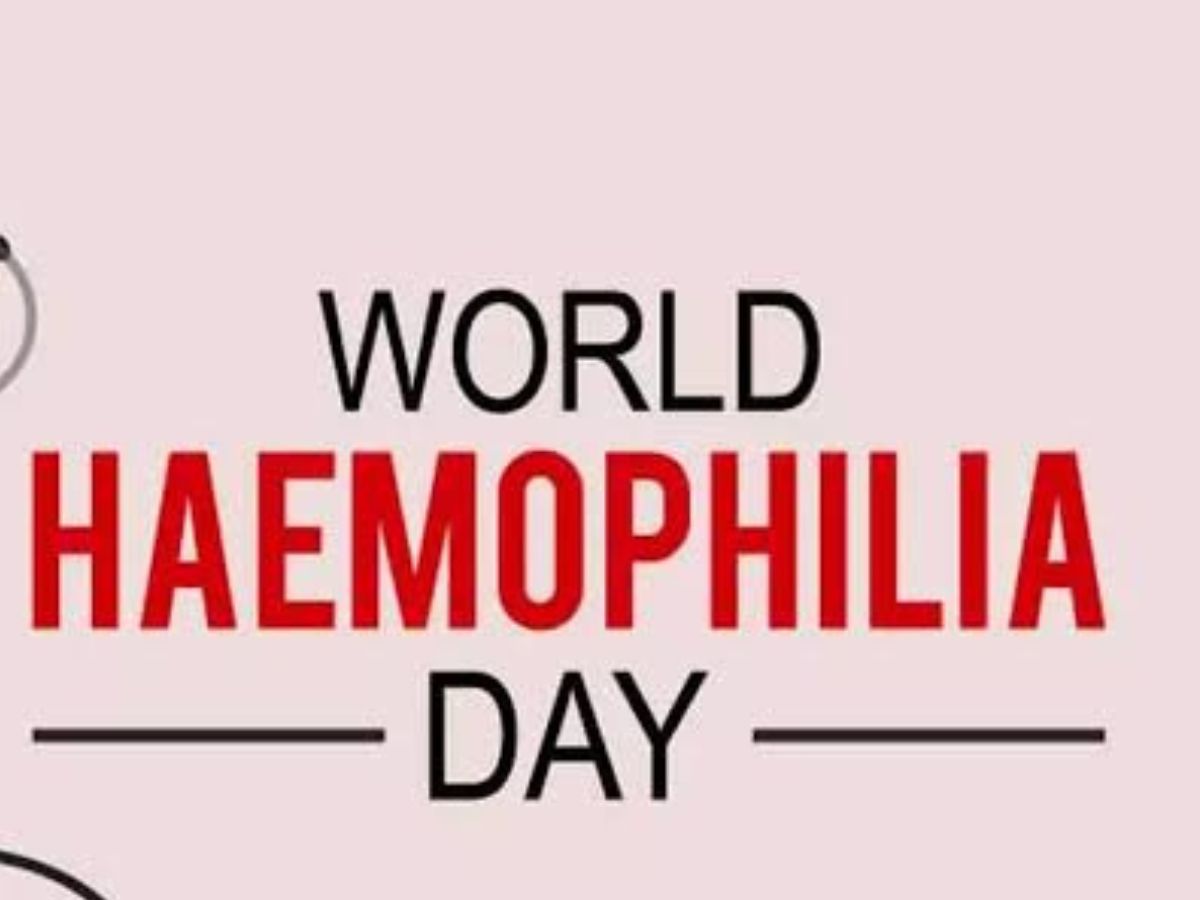
Every year on April 17, World Hemophilia Day is observed to raise awareness about the inherited bleeding disorder, Hemophilia. It is characterised by improper blood clotting, leading to spontaneous bleeding and difficulty in clotting after injuries or surgeries.
According to the Indian Council of Medical Research (ICMR), there are approximately 80,000 to 1,00,000 severe cases of Hemophilia in India, with around 19,000 registered cases with the Hemophilia Federation India (HFI). Globally, the World Federation of Hemophilia (WFH) estimates around 8,15,100 cases of Hemophilia, of which only 3,47,026 have been diagnosed. As many as 2,76,900 have been classified as severe Hemophilia.
Cause:
Hemophilia results from a mutation in one of the genes responsible for producing clotting factor proteins necessary for blood clot formation. This mutation can impair or completely inhibit the function of the clotting protein, typically found on the X chromosome. Males inherit one X chromosome from their mothers and one Y chromosome from their fathers, while females inherit one X chromosome from each parent.
Consequences of the disease:
Hemophilia can lead to bleeding within joints, causing chronic joint disease and pain. Bleeding in the head or brain can result in long-term issues such as seizures and paralysis, while blood in the urine or stool and frequent nosebleeds are also common symptoms. If bleeding cannot be controlled, particularly in vital organs like the brain, it can be fatal.
Types of Hemophilia:
The two most common types are Hemophilia A (caused by a deficiency of clotting factor VIII) and Hemophilia B (caused by a deficiency of clotting factor IX).
Treatment:
Dr Javaid Iqbal Khan, a Physician and Haematologist from Khyber Hospital, Srinagar, emphasises that the most effective treatment for Hemophilia involves replacing the missing clotting factor to enable proper blood clotting. This is achieved through infusions of commercially prepared factor concentrates, which can now be administered at Hemophilia Treatment Centers. Patients can also learn to perform these infusions themselves, a process known as prophylaxis, to prevent bleeding episodes.
Dr Khan stresses the importance of seeking medical care from professionals with expertise in treating Hemophilia, preferably at comprehensive Hemophilia Treatment Centers (HTCs). These centres not only offer specialised care but also provide health education to help patients manage their condition effectively.
However, about 15-20% of people with hemophilia may develop inhibitors, antibodies that interfere with clotting factors’ function, making treatment of bleeding episodes challenging. This can significantly increase the cost of care and lead to more severe joint diseases and other complications, ultimately reducing the patient’s quality of life.
Youth shot dead by bike-borne attackers while returning from marriage function; police recover cartridges, begin…
Arunachal women allege racial slurs and humiliation by neighbours over repair work dispute; police register…
The magistrate said the probe reveals that multiple associates could be absconding, which could tamper…
The cylinder blast injured six police and fire personnel deployed at the house where a…
Multiple operational teams have been deployed to probe the case. Crime and Forensic Science Laboratory…
The initiative focused on a victim-centric approach and aimed at strengthening public trust through proactive…